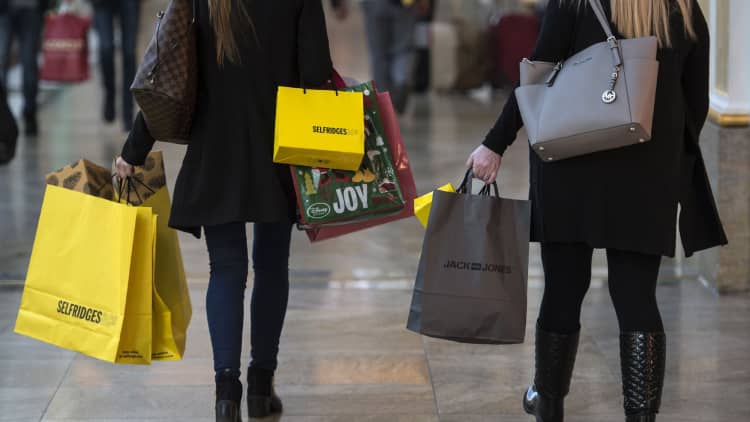
Saks Fifth Avenue isn't intimidated by the emergence of artificial intelligence and consumer preferences shifting to online retail, the luxury department store's president told CNBC on Friday.
"When you think about the online versus the offline experience, we don't need AI in our stores. We have 'I,'" said Marc Metrick, president of Saks. "We have living, breathing, 4,500 style advisors in our stores."
"The focus for Saks in the luxury space is really kind of convergence between tech and this living, breathing, selling associate," Metrick said in an interview on "Squawk Box."
Metrick spoke as e-commerce giant Amazon has been aggressive in expanding its retail muscle, including through partnerships and acquisitions. Meanwhile other retailers, including most recently Walmart's Sam's Club, are closing brick-and-mortar locations.
The Labor Department last week reported an unexpected loss of 20,000 retail positions during the holiday shopping season, bringing the number of jobs shed in the sector last year to nearly 70,000. The downward trend in retail jobs is believed to be a result of the ongoing shift to e-commerce sales.
Saks Fifth Avenue parent Hudson's Bay Co., like many retailers, has struggled with sales losses at its stores and a shrinking stock price. Last June, HBC announced a restructuring effort that included job cuts.
Also on "Squawk Box," National Retail Federation CEO Matthew Shay said struggling retailers are likely to benefit under the new U.S. tax law, which lowers the corporate tax rate to 21 percent from 35 percent.
"Based on those under the greatest pressure, they're likely to benefit the most," he said. "They're all paying that 35 percent corporate tax rate and then you add on the state and local tax and other rates."


